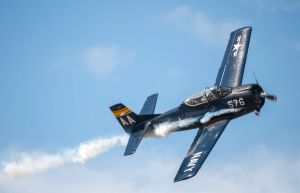France and Germany are moving forward with their plans to develop a new European fighter jet. The project, which was announced in 2017, aims to create a next-generation aircraft that can replace the aging fleets of fighters currently used by both countries.
The new fighter jet, known as the Future Combat Air System (FCAS), is being developed by a consortium of companies from France, Germany, and Spain. The project is being led by the French defense company Dassault Aviation and the German defense company Airbus.
The FCAS program is one of the most ambitious defense projects in Europe, with a projected cost of around €100 billion ($118 billion) over the next 20 years. The program aims to create a new generation of fighter jets that can operate in a range of combat situations, including air-to-air, air-to-ground, and electronic warfare.
The FCAS program is also being developed with a focus on interoperability and cooperation between European militaries. The project aims to create a fighter jet that can be used by a range of different European countries, allowing for greater collaboration and integration between their defense forces.
The development of the FCAS program has not been without its challenges. One of the main challenges has been finding agreement between the different countries involved in the project. France, Germany, and Spain have all had their own priorities and interests when it comes to the development of the new fighter jet, and finding a common vision has been difficult.
Another challenge has been the technical complexity of the project. Developing a next-generation fighter jet is a highly complex undertaking that requires the integration of a wide range of technologies and systems. The FCAS program is also being developed with a focus on cutting-edge technologies, such as artificial intelligence and autonomous systems, which present their own unique challenges.
Despite these challenges, France and Germany remain committed to the FCAS program. The project is seen as a key part of Europe's efforts to develop greater autonomy and independence in defense, particularly in light of changing geopolitical realities and the shifting balance of power in the world.
The FCAS program is also being developed with a focus on sustainability and reducing the environmental impact of military operations. The new fighter jet will be designed to use less fuel and produce fewer emissions than existing models, and the program is also exploring the use of sustainable materials and technologies.
In conclusion, the development of the FCAS program represents an ambitious and complex undertaking for France and Germany. Despite the challenges involved, the project is seen as a key part of Europe's efforts to develop greater autonomy and independence in defense, and to promote greater collaboration and interoperability between European militaries. With a focus on cutting-edge technologies, sustainability, and cooperation, the FCAS program is positioning Europe for a more secure and sustainable future.
Related to that take off, Inter-Consulting is looking for Swedish nationasls for various defence engineerings roles such as :
- Catia V5 design engineers
- CREO design engineers
- NX design engineers
- Electrical engineers
- Chassis design engineers
- Mechanical design engineers
- Inventor skills
- Vehicle system
- Power electrical system
- Electronic architect
- CAE engineers
- Aerospace design engineers
- Quality Assurance engineers
- Technical Project Manager
- Physical testing Verification engineers
- Power electrical engineers
- Hardware testing engineers
- Embedded software engineers
- NVH testing engineers
- Software Developers
- Devops engineers
- Functional Safety engineers
- HULL design engineers
- Aero jet design engineers
- Submarines engineers
- Program manager





